Investors Betting Big On AI ERP Software: Should You Do the Same?
Have you observed how AI keeps featuring in each and every boardroom discussion nowadays? Well, ERP software isn’t far behind. What’s more, AI-enabled ERP systems are drawing unprecedented funding all over the world, and Saudi Arabia is no different in terms of interest and implementation. Investors are viewing ERP as something more than back-office software; it’s emerging as the foundation for scalable, efficient, and compliant organizations.
Think about it: retail chains managing thousands of transactions across Riyadh, Jeddah, and Dammam, or manufacturers handling multiple production lines and warehouses, traditional systems can’t keep up. AI-driven ERP software can analyze trends, forecast demand, and automate decisions in real-time, which reduces errors and speeds up operations. That’s exactly why investors are placing big bets on this technology.
But for Saudi business leaders, it’s more than hype about technology. The wave of new funding indicates a wider market recognition: AI ERP is tackling the real operational issues, assisting businesses in processing growing volumes of transactions, and keeping pace with regulatory updates such as ZATCA e-invoicing. In simple terms, the globe is changing at a rapid pace, and the AI ERP happens to be the instrument which keeps the business from being left behind.
ERP Software 101: The Backbone of Modern Business
Let’s put it simply: an ERP system is the central nervous system of your company. It ties together finance, inventory, HR, procurement, and sales in one, combined platform. Rather than manipulating dozens of programs, apps, or older software programs, everything speaks to one another in real-time.
The AI Upgrade: From Reactive to Predictive Operations
Then put AI on top, and it’s a game-changer. Visualize your Riyadh and Jeddah retail outlets automatically forecasting stock shortages even before they occur, or your manufacturing shop changing production schedules according to current demand in real-time. AI-augmented ERP software does the very same, it identifies patterns, predicts trends, and even recommends next courses of action, so the decisions are not only quicker, but also more intelligent.
Why AI ERP Matters for Saudi Businesses
This translates to staying one step ahead in the game in the market where precision and speed are paramount. With regulations such as ZATCA e-invoicing and labor compliance, AI-driven insights mean your operations run seamlessly with no painstaking checks in the process. In a sentence, AI ERP does more than operate your business, it enables you to predict and react and stay one step ahead in the competitive market game.
Why Investors Are Betting Big
AI-based ERP software is no longer a technology trend, it is very quickly establishing itself as one of the most profitable investments in software for the enterprise, and the kingdom of Saudi Arabia stands at the very forefront of this opportunity. Investors are making all-time bets in AI ERP for a very simple reason: the technology produces quantifiable business value, pairing business process efficiency with top-line revenue growth, risk reduction, and scalability.
Automation and Cost Efficiency: The Core Investor Attraction
One of the key motivators among investors is lower operating expense through automation. Basic processes are automated in traditional ERP software, but AI ERP takes several leaps forward. Processes that used to take multiple teams and some amount of manual labor, such as invoice reconciliation, payroll processing, inventory updates, or cross-location procurements approvals, can now be carried out automatically, accurately, and in real time. To investors, this means a business model where businesses can increase operations without scaling headcount in the same ratio, which improves margins significantly. In Saudi Arabia, where multi-location businesses are the norm and intricate supply chains are prevalent, this cost-saving opportunity stands extremely high.
Predictive Insights Driving Smarter Decisions
Another important driver is quicker, data-backed decision-making driven by predictive insights. AI ERP systems process huge streams of organizational data in search of patterns and likely outcomes and thus enables organizations to take proactive action instead of reactive action. For instance, a factory in the Eastern Province can forecast which production lines are likely to experience bottlenecked operations in the coming month or which suppliers are likely to fail in meeting delivery schedules. A Riyadh- or Jeddah-based retail chain can predict stock deficiencies even before they occur and take orders automatically. Such predictive insights minimize downtime, avoid lost sales, and maximize operational agility in general, and investors view such outcomes as directly correlated with business value.
Revenue Growth Through Intelligent Planning
Another reason why AI ERP is drawing record investment is revenue growth through the right inventory, price, and demand planning. Based on the history of sales trends, market conditions, and customer purchasing behavior, AI ERP implementations provide the ideal pricing recommendation, inventory replenishment suggestion, and high-value customer segmentation. Take the case of a GCC distributor operating with multiple warehouses: AI ERP can seamlessly manage the volume held in locations so the right popular products are in stock where demand peaks while keeping deadstock minimal. Such operational intelligence at the run-rate directly influences top-line revenue and profit, and the investment opportunity becomes all the more compelling.
Types of ERP and Benefits from Modularity
When it comes to ERP software, one size does not fit all. Saudi enterprises are varied, from large Riyadh retailing chains to high-producing manufacturing facilities in the Eastern Province. That’s where modular ERP comes in. Rather than having you embrace the whole package all at once, you get the choice of the individual modules: finance, HR, inventory, purchasing, CRM, or production.
Industry-Specific Modules for Tailored Efficiency
Consider manufacturing, for instance. A manufacturing ERP module can control the shop-floor operations, quality, and purchases and integrate seamlessly with your accounting software. In a retailing company, a retail ERP module can maintain all the sales, stock, and customer records in all the stores in a single location at the hub. Modules operate autonomously but share with others and so provide complete 360° visibility without drowning your staff.
Scalable, Future-Ready ERP for Saudi Enterprises
The best part? Modular ERP adapts with your business. You add more branches in Jeddah, more distribution channels in the Kingdom, more lines in production – your ERP can grow with you without ever interrupting operations. It’s also a savvy form of future-proofing your business so that you can always stay in step with changing regulations such as ZATCA while keeping transaction volume in check.
Simply put, modular ERP enables you to begin smartly, scale strategically, and remain flexible, just what Saudi businesses require in 2025.
Scaling Smart: Going Multi-Location and Global Expansion
Growing a business in Saudi Arabia nowadays isn’t so much about new outlets or plants; it’s about operating more locations more effectively in compliance. More locations add complexity: varied inventory needs, varied supplier networks, and varied reporting needs. That’s where AI-powered ERP software becomes useful – a strategic ally.
Real-Time Visibility Across Locations
You can see in real-time all your plants or branches with the correct ERP system. You can picture yourself tracking Riyadh warehouse inventory, Dammam production schedules, and Jeddah retail sales all from one dashboard. AI software processes this information and points out inefficiencies, forecasts demand, and even suggests resource allocation across sites.
Simplifying Global Operations and Compliance
When expanding globally, ERP software allows for an integrated structure that reduces the complexity of managing currency, multi-country reporting, and cross-country logistics. In Saudi Arabia, where compliance such as in ZATCA and GOSI reporting matters, having an ERP system in place that ties all these together lowers the risk and allows your staff to target growth.
Scaling Up Smart: Consistency, Efficiency, and Control
Scaling isn’t scaling up, it’s scaling up smart. What multi-location ERP capabilities really mean: Even as your operations scale, you can deliver consistency, efficiency, and control in every corner of the business.
How to Pick the Best-Fit AI ERP Partner in Saudi Arabia
When it comes to making the most strategic technology decision possible, the implementation of AI-enabled ERP software tops the list for the Saudi corporation. Success of such transformation, though, does not lie merely in the software, but in the choice of the correct vendor. Even though more ERP vendors are now emerging with claims of having AI capabilities, the business leader must get beyond the hype of marketing and be interested in pragmatic criteria that mirror their operating, regulatory, and cultural realities.
1. Assess the Vendor’s Local Regulatory Expertise
Compliance in Saudi Arabia is compulsory. From GOSI reporting and VAT filling all the way up to ZATCA e-invoicing and changing data residency needs, businesses require an ERP partner well-versed in the local regulatory environment from top to bottom. The ideal provider should simultaneously confirm automated compliance with such directives while also offering routine updates due to changing regulations. Ask if the provider’s AI-enabled ERP platform comes pre-configured with Saudi tax codes, stages of e-invoicing, and Arabic-language document templates. Regional experience isn’t merely about localization, it’s about maintaining audit readiness, risks averted, and convergence with nationwide transformation agendas such as Vision 2030.
2. Assess Modularity and Scalability
No two Saudi businesses are alike. A Riyadh retail chain expanding rapidly differs vastly from a Dammam manufacturer or a Jeddah logistics company. That’s where modularity comes in. The optimal AI ERP provider must provide a modular structure so that you can begin with core modules, such as accounting, HR, or inventory, and grow progressively as the business expands. Scalability keeps costs low and prevents teams from being overwhelmed while still allowing existing processes in the endeavor to run unfettered. Scalability is also imperative: the ERP must process growing transaction volumes, multi-branch usage, and data loads while the enterprise expands elsewhere in the Kingdom or internationally.
3. Make the AI Contextual and Not Generic
AI capabilities are only as good as their context. Most ERP products tout the usage of AI but use generic models that have no regional business sensitivities or industry-specific challenges. An ERP with AI for Saudi organizations needs to be contextually aware and understand local workflows, linguistic cues, and industry-specific KPIs. A predictive demand forecasting for a Saudi Retail chain, for instance, needs to consider the Ramadan and Eid spending habits, while a manufacturing AI model needs regional supply cycles awareness. Contextual intelligence turns raw data into localized meaningful insights that guide wiser, faster decisions.
4. Search for Multi-Location Handling and Bilingual Assistance
Since the majority of Saudi businesses are operating in more than one location, Riyadh, Dammam, Jeddah, or even outside in the GCC nations, multi-branch management becomes a necessity. The ERP needs to provide an integrated dashboard that handles inventory, finances, HR, and operations in all the branches in real time. Furthermore, seamless English-Arabic support enables teams at all levels to derive the maximum value from the platform. That’s not just a convenience feature, it’s an enabler for productivity that shuts the communication gap among the operations, HR, and finance teams.
5. Consider Cloud Flexibility and Data Protection
Lastly, in a digital-first economy, your ERP should have cloud-based deployment with processes for robust controls over data security. Cloud ERP gives anywhere and anytime access and lowers the cost of IT infrastructure. Data residency compliance is essential for Saudi businesses, though make sure that your supplier’s data centers are in compliance with local regulations in Saudi Arabia’s data localization and provide secure, encrypted storage.
The HostBooks Edge: Saudi Business’s ERP Powered with AI
When you have thought about implementing AI-driven ERP in Saudi Arabia, then HostBooks can be quite a pragmatic solution developed in harmony with real business needs. What distinguishes it from the rest isn’t technology per se, it’s the fact that it alters day-to-day operations.
Agentic AI: Actionable Insights Across Business Functions
HostBooks’ Agentic AI keeps a close watch over finance, inventory, procurements, HR, and compliance. It does not merely display dashboards; it delivers actionable insights, and the manager can plan for reductions in delays, stock optimizations, and quicker decisions. This implies minimal production bottlenecks, intelligent inventory deployment, and efficient order delivery for manufacturing and retail organizations.
Scalable, Compliant, and Future-Ready Architecture
Scalable architecture allows you to implement only the amount you require, like inventory software, HR, or ERP in the accounting, and scale with the business. Business operations at multiple sites are streamlined with the single view across branches and warehouses. Compliance features in alignment with Saudi regulations keep businesses always prepared for the audit and risk-proof.
HostBooks: More Than ERP, A True Growth Partner
In short, HostBooks is not merely an ERP system; it’s a growth partner. It automates laborious work, enhances operating efficiency, and allows Saudi businesses to grow with confidence while complying with evolving regulatory and market needs.
Opening Up Operational Intelligence: Beyond Automation
But very few Saudi businesses treat ERP as simply automating day-to-day work, and the large point of differentiation still stands with operational intelligence. AI-powered ERP systems like HostBooks go beyond automation and actually scan for patterns in your business processes.
Predictive Insights for Manufacturing and Retail
For manufacturing, it implies predictive maintenance for equipment, minimizing downtime prior to its occurrence. Stock no longer only needs to be tracked, AI predicts demand, adjusts reorder points, and indicates sluggish SKUs in order to release working capital. Retailers get actionable intelligence about sales patterns, customer purchasing habits, and supply chain points of congestion in more than one store in Riyadh, Jeddah, and Dammam.
Financial and HR Intelligence for Faster Decisions
The finance teams also gain: automated reconciliations, cash flow tracking in real-time, and real-time reporting cut down errors and facilitate faster decision-making. HR teams can predict workforce demand and track compliance effortlessly.
The Big Idea: From Data to Decision Intelligence
The big idea here? AI-driven ERP converts data into decision intelligence, allowing Saudi businesses to move forward proactively instead of reactively. In the year 2025, businesses that harness such insights shall run more efficiently, cut costs, and scale with confidence while keeping regulatory compliance paramount at all times.
Future-Proofing the Saudi Business with AI ERP
Saudi Arabia growth in 2025 isn’t merely scaling up the business, it’s doing things smarter, quicker, and with complete visibility. ERP software powered by AI redefines the way organizations perform finance, inventory, HR, and compliance and turns complexity into clarity. From modular implementation to multi-site operations, these applications scale up your business seamlessly without missing a beat.
HostBooks’ ERP is not only automation, it’s predictive insights, real-time tracking, and accurate decisions that traditional systems simply can’t match. In the case of chains in the retailing sector, manufacturing houses, and trading concerns in Saudi Arabia, this’s not an upgrade, it’s a competitive advantage. The choice is easy: Businesses that adopt AI ERP now chart the path for tomorrow’s regulatory compliance, operational improvements, and potential growth. Do not let challenges govern your pace, redefine your processes and future-proof your company now.

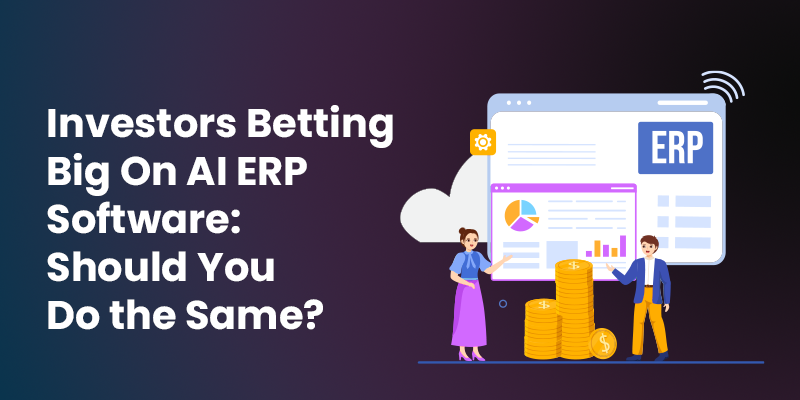
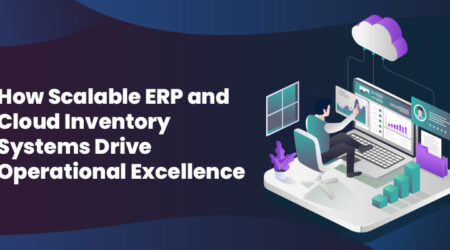
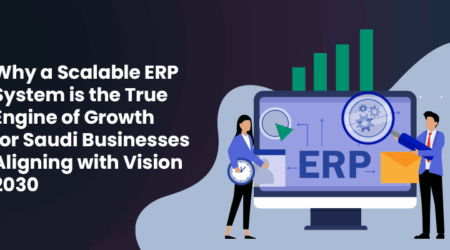

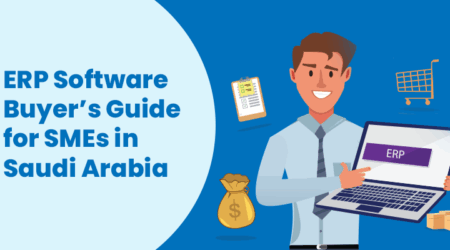
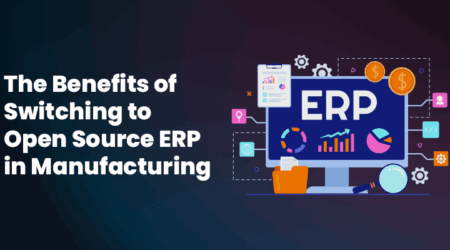
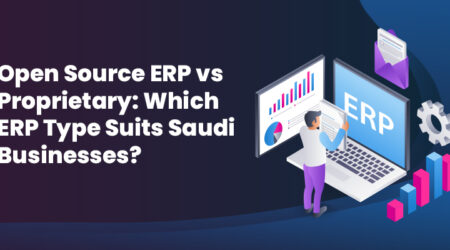
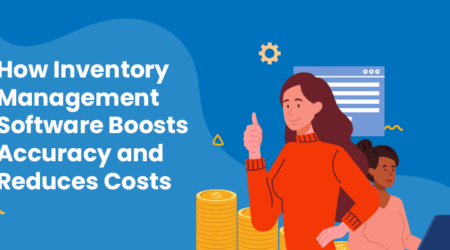

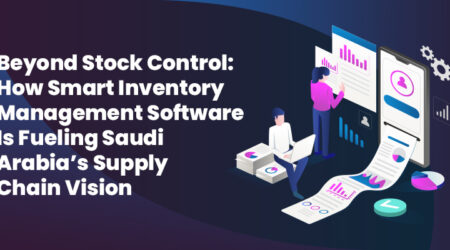
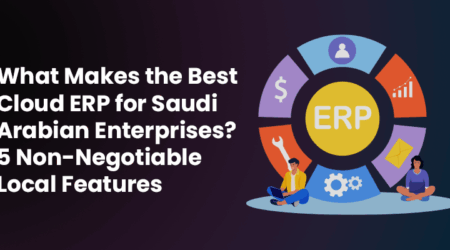
Leave a Reply